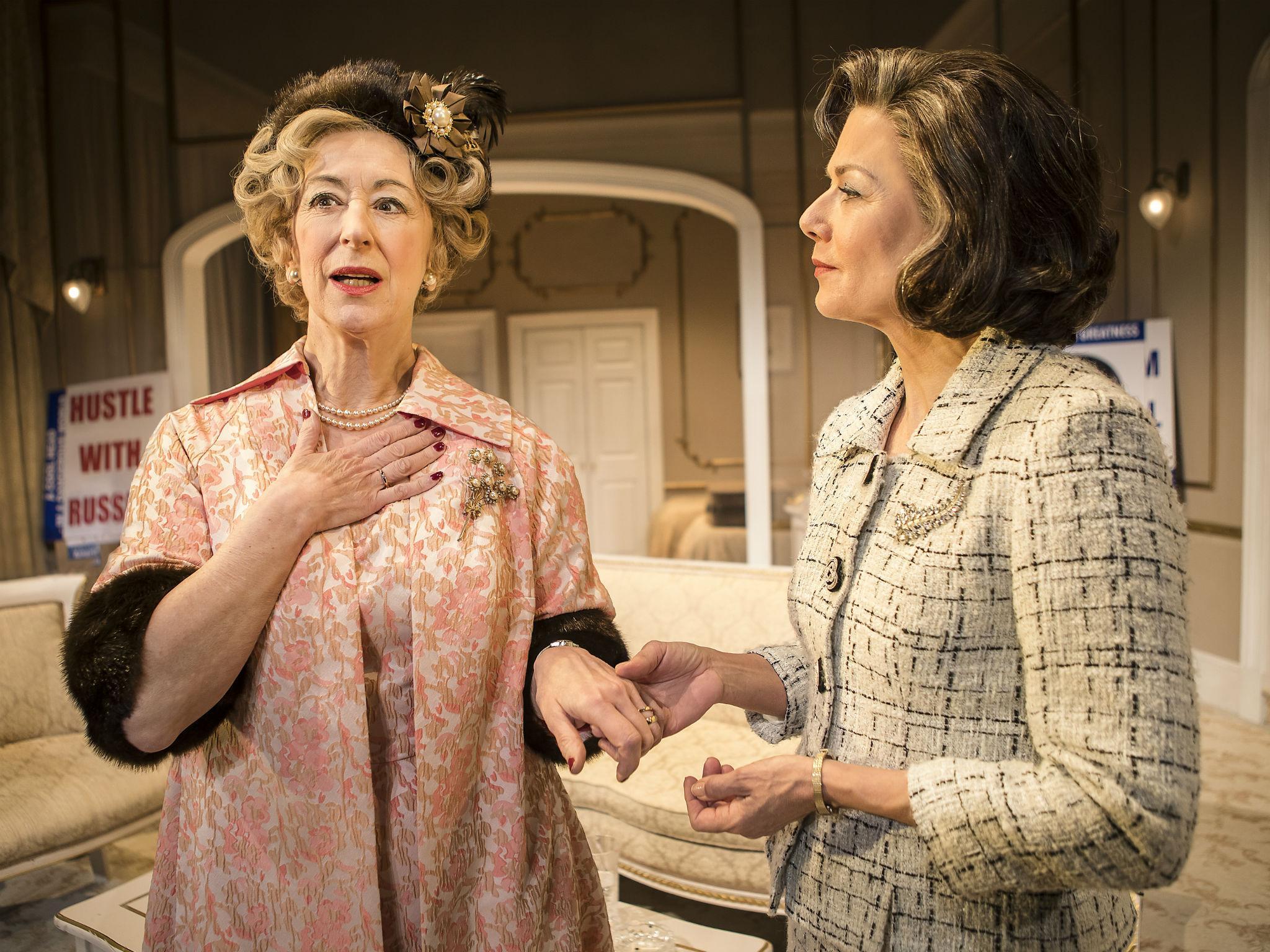The Best Man, The Playhouse, London, review: It pales in comparison to current White House melodramas
The return of Gore Vidal’s presidential drama stars Martin Shaw, Jeff Fahey and Maureen Lipman as well as Honeysuckle Weeks and Glynis Barber

Your support helps us to tell the story
From reproductive rights to climate change to Big Tech, The Independent is on the ground when the story is developing. Whether it's investigating the financials of Elon Musk's pro-Trump PAC or producing our latest documentary, 'The A Word', which shines a light on the American women fighting for reproductive rights, we know how important it is to parse out the facts from the messaging.
At such a critical moment in US history, we need reporters on the ground. Your donation allows us to keep sending journalists to speak to both sides of the story.
The Independent is trusted by Americans across the entire political spectrum. And unlike many other quality news outlets, we choose not to lock Americans out of our reporting and analysis with paywalls. We believe quality journalism should be available to everyone, paid for by those who can afford it.
Your support makes all the difference.Set at a presidential nominating convention, Gore Vidal’s The Best Man, which premiered on Broadway in March 1960 and has now transferred to the West End, tells the story of a race between two fictional politicians – the upright and experienced former Secretary William Russell, and the ruthless, “plain spoken” Senator Joe Cantwell. Nine points up, with the former president’s endorsement due any moment, the nomination is Russell’s to lose.
In the US’s arcane system for choosing its leaders, when parties enter a convention without a clear frontrunner, the presidential nominees go through a series of ballots by delegates and superdelegates from the various states of the Union. Rather than showing the vote trading and persuasion techniques used to win over these voting delegates, the primary action of The Best Man takes places before a single ballot is cast. Vidal’s play centres on the real power struggles: the backroom deals, smear threats, and outright blackmail.
As exciting as all the premise sounds, The Best Man falls slightly flat. Taking some time to warm up, the action is confined to conversation that should crackle with the electricity of ideas bouncing off one another, but at times feels like a seminar. Moreover, the shocking cynicism of the 1960s feels rather tame now. The idea that candidates do dirty deals in smoke-filled rooms fails to shock in 2018.
Jeff Fahey as Cantwell is vibrant as the morally lax populist. Fahey exudes the ambition and dogged obsession of the demagogue politician. Slick and ready to throw dirt to get elected, Vidal based the character on the upstarts, red scaremongerers of the time – John F Kennedy, Richard Nixon, Estes Kefauver, and Joe McCarthy. Martin Shaw as Russell suffers from the fact that Russell himself is something of a bore – although we’re repeatedly told how charming he is, the Russell presented to the audience is something of a pious, sermonising, smart alec.
Maureen Lipman as the representative of women in the party has some of the best lines, and her appearances are to be savoured in what can at times be dry exchanges. Lipman, dressed in twinset-and-pearls, and flamboyant hats to epitomise middle America, teaches Russell three important and timeless lessons of politics; don’t be too smart, have an inoffensive wife, and don’t ever get into an argument about your mental health. Vidal’s play was prescient of the fate that befell Thomas Eagleton, the one-time vice-presidential candidate who was forced to drop out of the 1972 White House race once his psychiatric records became public. Depressingly, the issues feel as true today as when Gore wrote them 57 years ago.
Despite the topical political discussion the whole thing leaves one unmoved. Vidal’s scenes among the political wives exchanging backhanded compliments are of course some of the strongest, but due to the fact these characters are amalgams of real people, even strong delivery by the cast prevents any sort of emotional connection to the audience from taking shape. Russell and Cantwell’s fate is of note, but hardly gut-wrenching. Although lauded for its relevance, it pales in comparison to current White House melodramas, being too tame to entertain fully.
Until 12 May (www.atgtickets.com/venues/playhouse-theatre)
Join our commenting forum
Join thought-provoking conversations, follow other Independent readers and see their replies
Comments